apostle paul timeline pdf

Apostle Paul’s life is a transformative journey from persecution to profound Christian leadership‚ marked by missionary journeys‚ imprisonment‚ and martyrdom‚ shaping early Christianity’s foundation and enduring legacy․
1․1 Overview of the Apostle Paul’s Life
Apostle Paul‚ born between 5-15 AD in Tarsus‚ was a Roman citizen and Pharisee․ He studied under Gamaliel in Jerusalem‚ persecuted early Christians‚ and converted circa 37 AD․ His life transformed into missionary work‚ establishing churches across the Mediterranean․ He endured imprisonment‚ wrote epistles‚ and was martyred in Rome around 65 AD․ His teachings and legacy profoundly shaped Christianity‚ bridging Jewish and Gentile communities‚ leaving a lasting impact on faith and doctrine․
1․2 Importance of Understanding Paul’s Timeline
Understanding Apostle Paul’s timeline is crucial for grasping the spread of Christianity‚ the context of his epistles‚ and his enduring influence․ His journey from persecution to missionary work‚ imprisonment‚ and martyrdom highlights his pivotal role in shaping Christian doctrine․ Analyzing his life events clarifies the historical and theological significance of his teachings‚ offering insights into the early church’s development and the integration of Jewish and Gentile communities into the faith․

Early Life and Education
Apostle Paul was born in Tarsus‚ a Roman citizen‚ and educated under Gamaliel in Jerusalem‚ becoming a devout Pharisee‚ deeply rooted in Jewish tradition and scripture․
2․1 Birth and Background in Tarsus
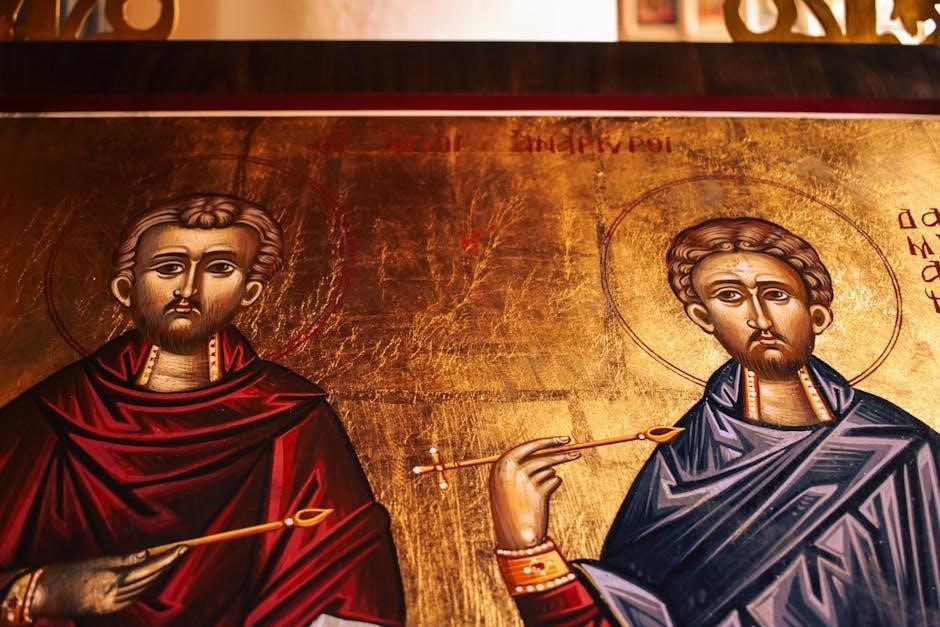
Apostle Paul was born in Tarsus‚ a Roman citizen‚ and raised in a Jewish family․ His birthplace‚ a cultural crossroads‚ influenced his early life․ As a member of the tribe of Benjamin‚ he was given the name Saul․ Tarsus‚ a center of Greek culture and learning‚ shaped his upbringing‚ blending Jewish heritage with Roman citizenship‚ preparing him for his future missionary role․
2․2 Education Under Gamaliel in Jerusalem
Apostle Paul received his education under Gamaliel‚ a renowned Pharisee‚ in Jerusalem․ This training immersed him in Jewish law and scripture‚ shaping his identity as a devout Pharisee․ His studies prepared him for a life of strict adherence to Jewish traditions‚ which initially fueled his persecution of early Christians before his conversion on the Damascus Road․
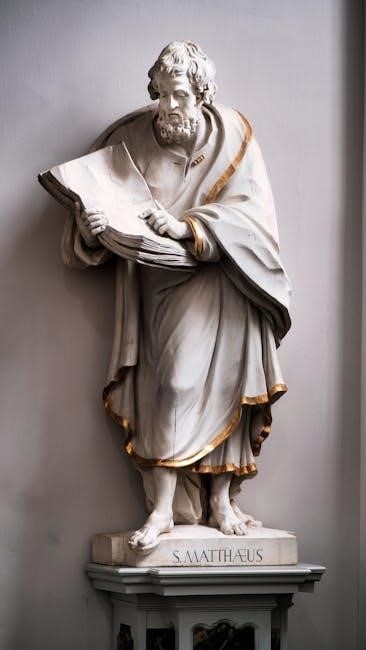
Conversion and Early Ministry
Paul’s dramatic conversion on the Damascus Road transformed him from a Christian persecutor to a devout missionary‚ initiating his powerful ministry and spreading Jesus’ teachings worldwide․
3․1 The Damascus Road Experience
Paul’s life changed abruptly on the Damascus Road when a blinding light and Jesus’ voice halted his persecution of Christians․ This divine encounter led to his baptism‚ forgiving his sins‚ and commissioning him as a missionary․ The event‚ described in Acts‚ signifies Paul’s radical transformation from a Pharisee to a passionate advocate for Christ‚ fulfilling God’s plan for his life and ministry․
3․2 Initial Preaching and Persecution
After his conversion‚ Paul began preaching in Damascus‚ shocking his former allies․ He escaped persecution by being lowered in a basket over the city wall‚ fleeing to Tarsus for safety․ Later‚ in Jerusalem‚ he faced hostility from Jewish leaders‚ leading to his escape to Caesarea․ Despite these challenges‚ Paul’s bold witness and resilience laid the groundwork for his future missionary endeavors‚ supported by early Christian leaders like Barnabas․
Missionary Journeys
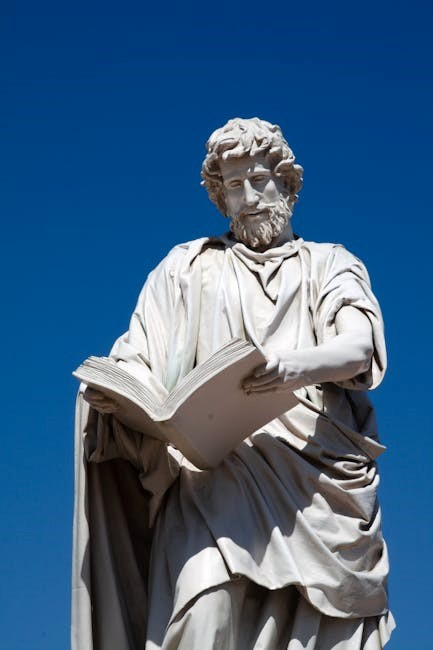
Paul embarked on three extensive missionary journeys‚ establishing churches across Cyprus‚ Galatia‚ Macedonia‚ Achaia‚ and Ephesus‚ spreading Christianity and leaving a lasting impact on the ancient world․
4․1 First Missionary Journey (Cyprus and Galatia)
Paul’s first missionary journey‚ circa 45-47 AD‚ began in Antioch‚ accompanied by Barnabas and Mark․ They preached in Cyprus‚ converting the Roman proconsul Sergius Paulus‚ symbolizing the Gentile mission․ Moving to Galatia‚ they faced persecution but established resilient churches․ This journey marked the beginning of Paul’s extensive evangelistic efforts‚ laying the groundwork for his future missionary endeavors and theological contributions․
4․2 Second Missionary Journey (Macedonia and Achaia)
Paul’s second missionary journey (51-54 AD) began with Silas‚ Timothy‚ and Luke․ They traversed Asia Minor‚ entering Macedonia‚ where Paul preached in Philippi‚ Thessalonica‚ and Berea․ Moving to Achaia‚ he ministered in Corinth for 18 months‚ establishing a vibrant church․ Despite persecution‚ this journey expanded Christianity in the Greco-Roman world‚ solidifying Paul’s role as a pioneer of Gentile evangelization and deepening his theological insights․
4․3 Third Missionary Journey (Ephesus and Beyond)
Paul’s third missionary journey (54-58 AD) focused on strengthening churches in Asia Minor and Greece․ He spent three years in Ephesus‚ where he faced opposition from silversmiths but established a robust church․ Paul also visited Corinth‚ writing influential epistles to the Corinthians and Romans․ This journey highlighted his commitment to discipleship and theological depth‚ leaving a lasting legacy in early Christianity․
Imprisonment and Later Life
Paul’s imprisonment began in Jerusalem‚ continued in Caesarea‚ and ended in Rome under house arrest․ He wrote epistles like Ephesians and Philippians‚ showcasing unwavering faith despite captivity․
5․1 Arrest in Jerusalem and Imprisonment in Caesarea
Paul was arrested in Jerusalem after unrest in the temple‚ sparking a two-year imprisonment in Caesarea․ He appeared before Felix and Festus‚ defending his faith․ Festus transferred Paul to Rome‚ where he was placed under house arrest․ During this period‚ Paul wrote several epistles‚ including Ephesians and Philippians‚ emphasizing his unwavering commitment to spreading Christianity despite captivity and trials․
5․2 Journey to Rome and House Arrest
Following his appeal to Emperor Nero‚ Paul was sent to Rome under armed guard․ During the voyage‚ a violent storm damaged the ship‚ but all aboard survived․ In Rome‚ Paul was placed under house arrest for two years‚ where he continued preaching and wrote several epistles‚ including Philemon and Colossians․ Despite captivity‚ his influence grew‚ as he shared the Gospel freely with those who visited him․
5․3 Events After Acts 28 (Release‚ Ministry in Spain‚ Final Imprisonment)
After his release from Roman house arrest‚ Paul likely ministered in Spain‚ fulfilling his long-held desire․ He wrote 1 Timothy and Titus during this period․ Later‚ he was imprisoned again in Rome‚ where he penned 2 Timothy․ Facing execution‚ Paul remained steadfast in his faith․ His final imprisonment ended in martyrdom by beheading circa 65 AD‚ marking the end of his earthly ministry and cementing his legacy as a devoted apostle․
Martyrdom and Legacy
Apostle Paul was martyred in Rome circa 65 AD‚ beheaded during Nero’s reign․ His teachings and writings profoundly shaped Christianity‚ leaving an enduring spiritual legacy worldwide․
6․1 Martyrdom in Rome (circa 65 AD)
Apostle Paul was martyred in Rome around 65 AD‚ during Emperor Nero’s persecution of Christians․ According to historical accounts‚ he was beheaded outside the city‚ a fate reserved for Roman citizens․ This event marked the end of his missionary journeys and imprisonment․ Paul’s martyrdom symbolized his unwavering commitment to spreading Christianity‚ even in the face of death‚ leaving a lasting impact on the early church and future generations․
6․2 Impact of Paul’s Life and Teachings
Apostle Paul’s life and teachings profoundly shaped Christianity‚ establishing foundational doctrines and spreading the faith across the Mediterranean․ His epistles‚ such as Romans and Corinthians‚ remain central to Christian theology‚ emphasizing grace‚ faith‚ and reconciliation․ Paul’s missionary work and legacy continue to inspire believers‚ solidifying his role as one of the most influential figures in Christian history‚ bridging Jewish and Gentile communities‚ and fostering a universal church․
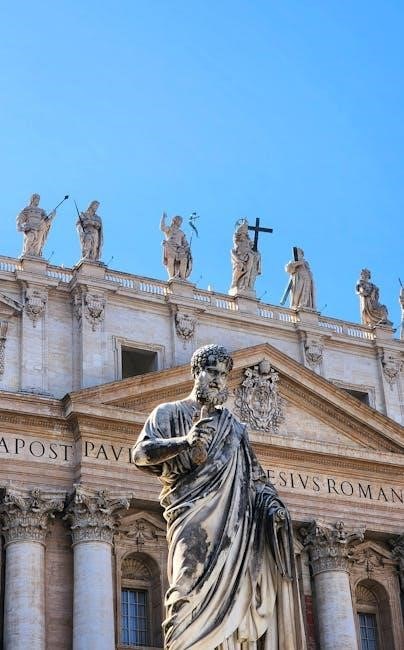
Key Geographical Locations
Tarsus‚ Jerusalem‚ Antioch‚ Corinth‚ Ephesus‚ and Rome are central to Paul’s journey‚ marking his birth‚ ministry‚ church planting‚ and final imprisonment‚ shaping his missionary endeavors․
7․1 Tarsus‚ Jerusalem‚ Antioch‚ Corinth‚ Ephesus‚ Rome
Tarsus‚ Paul’s birthplace‚ shaped his early life․ Jerusalem‚ where he studied under Gamaliel‚ became a hub for his ministry and later arrest․ Antioch served as the launchpoint for his missionary journeys․ Corinth and Ephesus were pivotal for church planting and theological discourse․ Rome‚ the empire’s capital‚ marked the end of his journeys‚ where he was imprisoned and ultimately martyred‚ leaving an indelible mark on Christianity’s spread and legacy․
Apostle Paul’s Writings
Apostle Paul authored 13 New Testament epistles‚ including Romans‚ Corinthians‚ Galatians‚ Ephesians‚ Philippians‚ Thessalonians‚ and Pastoral Epistles‚ providing theological depth and guidance to early Christian communities․
8․1 Letters Written During His Missionary Journeys
Dating back to Paul’s missionary journeys‚ letters such as Galatians‚ Thessalonians‚ and Corinthians were composed․ These epistles addressed specific issues within the early churches‚ like theological disputes and moral guidance‚ reflecting the challenges faced during his travels․ They served as foundational texts for establishing doctrine and practices‚ offering insights into Paul’s theology and his efforts to strengthen the faith of burgeoning Christian communities․
8․2 Letters Written During Imprisonment (Prison Epistles)
During his imprisonment‚ Paul authored several epistles‚ including Ephesians‚ Philippians‚ Colossians‚ and Philemon․ These letters‚ known as the Prison Epistles‚ emphasize themes of hope‚ grace‚ and unity in Christ․ Addressing both individuals and churches‚ they provide guidance on living a faithful life amidst challenges․ These writings showcase Paul’s unwavering faith and his commitment to spreading the Gospel‚ even in the face of adversity‚ leaving a lasting legacy in Christian theology․
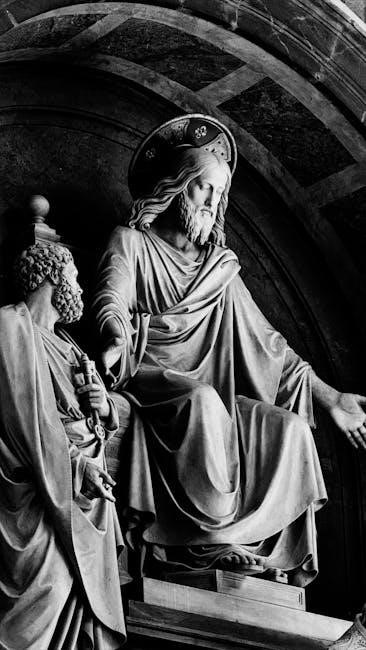
Historical Context
Paul’s ministry occurred under Roman emperors Tiberius‚ Claudius‚ and Nero‚ whose reigns influenced his missionary work and persecution․ This period shaped the political and religious backdrop of his efforts․
9․1 Roman Emperors During Paul’s Ministry (Tiberius‚ Claudius‚ Nero)
Paul’s missionary work unfolded under the rule of three key Roman emperors․ Tiberius (14-37 AD) saw Paul’s early persecution and conversion․ Claudius (41-54 AD) expelled Jews from Rome‚ indirectly aiding Paul’s ministry․ Nero (54-68 AD) oversaw Paul’s final imprisonment and execution․ Each emperor’s reign influenced the political climate‚ shaping the challenges and opportunities Paul faced in spreading Christianity․
Destruction of the Temple in 70 AD
The destruction of Jerusalem’s Temple in 70 AD marked the end of the Jewish era‚ fulfilling Jesus’ prophecy and underscoring Paul’s teachings on Christianity’s universal mission․
10․1 Significance in Relation to Paul’s Ministry
The destruction of the Temple in 70 AD symbolized the end of the Jewish sacrificial system‚ aligning with Paul’s teachings on Christ as the ultimate sacrifice․ This event validated his ministry’s focus on Gentile inclusion and the universal church‚ emphasizing the transition from Temple-based worship to a spiritual‚ messianic community․ It highlighted the fulfillment of Jesus’ prophecies and the irreversible shift in God’s redemptive plan‚ central to Paul’s theology․
Apostle Paul’s life‚ marked by perseverance and divine purpose‚ reshaped Christianity․ His journeys‚ writings‚ and martyrdom left an enduring legacy‚ inspiring faith and transforming lives for centuries․
11․1 Summary of Apostle Paul’s Timeline
Apostle Paul’s life was a journey of transformation‚ from persecuting Christians to becoming a pivotal figure in early Christianity․ Born in Tarsus‚ educated in Jerusalem‚ and converted on the Damascus Road‚ Paul embarked on three missionary journeys‚ establishing churches and writing epistles․ His ministry faced persecution‚ imprisonment‚ and martyrdom in Rome circa 65 AD․ Despite challenges‚ his teachings and legacy continue to influence Christian faith globally‚ leaving an indelible mark on history․
11․2 Final Thoughts on His Enduring Influence
Apostle Paul’s life and teachings have left an indelible mark on Christianity‚ shaping its theology‚ practices‚ and global spread․ His epistles remain foundational‚ addressing faith‚ grace‚ and unity․ Paul’s resilience in the face of persecution and his unwavering commitment to spreading the Gospel inspire believers worldwide․ His legacy endures as a testament to the transformative power of faith‚ influencing countless lives and cultures across centuries․





